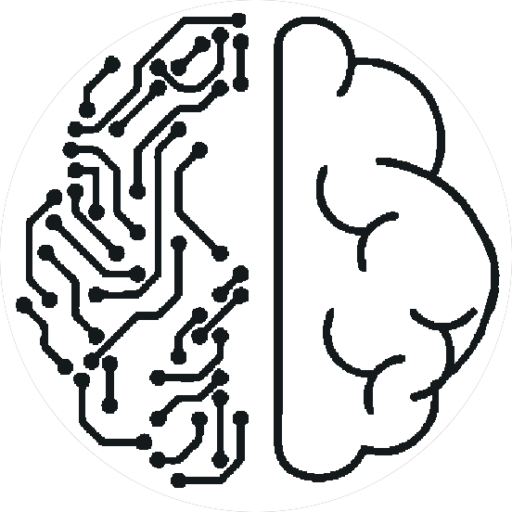The Challenges and Rewards of Being a Mental Health Provider Working in psychiatry as a mental health provider is a unique and fulfilling experience. Every day, you have the opportunity to make a significant difference in people’s lives, guiding them through struggles with mental health; helping them find wellness. However, like any field in medicine, […]
Mastering the OARS of Motivational Interviewing Motivational Interviewing (MI) is a powerful tool in the psychiatric toolkit, especially when working with patients who are ambivalent about change. Whether you’re addressing medication adherence, lifestyle modifications, or other behavioral changes, MI can help patients explore their ambivalence and move toward positive action. Central to MI are the […]
The Importance of Self-Care in Psychiatry Protecting Yourself From Burnout Working in psychiatry is incredibly rewarding, but it can also be mentally and physically exhausting if you don’t take care of yourself. I’ve learned the hard way that self-care isn’t just about getting through the day—it’s about making sure you can keep doing what you […]
Selling Side Effects: How to Navigate the Conversation with Psychiatric Patients As a psychiatric provider, discussing potential side effects with patients is a delicate but crucial part of treatment. It’s not just about informing them—it’s about reassuring them, validating their concerns, and building trust in the treatment plan. Here’s how you can approach this […]
Setting Boundaries Protecting Your Well-Being and Your Practice As a psychiatry PA, setting boundaries is crucial—not just for your patients, but for yourself as well. Boundaries help maintain a healthy work-life balance, ensure clear expectations in your practice, and ultimately contribute to better care for your patients. Boundaries for Yourself: Maintaining Work-Life Balance No Emails […]
The Challenges of Being a Mental Health Provider Working in psychiatry as a mental health provider is a unique and fulfilling experience. Every day, you have the opportunity to make a significant difference in people’s lives, guiding them through struggles with mental health; helping them find wellness. However, like any field in medicine, it comes […]
Yoga: The Original Psychotherapy Long before modern psychiatry, yoga paved the way for mental wellness. The wisdom of yoga, dating back thousands of years, laid the foundation for many principles we now use in psychiatry. Modern research confirms what yogis have known for centuries: yoga is a powerful tool for mental health. Regular yoga practice […]
Breaking Barriers: PAs in Psychiatry Some barriers exist for Physician Assistants (PAs) looking to break into Psych. Many NPs attend school specifically to learn psychiatry, while PAs receive comprehensive training in all areas of medicine, including psychiatry. Training Challenges and Physician Preferences This slight edge, however, can be overcome with better education for physicians and […]
The Gut-Brain Axis: Your Second Brain The Gut-Brain Axis is a complex communication network linking your gut and brain, impacting your physical and mental health through neural, hormonal, and immune pathways. Components of the Gut-Brain Axis Microbiota: Trillions of microorganisms in your gut, known as the gut microbiota, are essential for digestion, immune function, and […]
Understanding Genetics and Epigenetics in Mental Health
Hey there! Today, we’re talking genetics and epigenetics and how they play a crucial role in mental health. Whether you’re curious about your family history or wondering how lifestyle choices can impact your mental health, this blog will shed some light on these important topics.
Genetics: The Family Connection
First, let’s talk about genetics. Genetics refers to the information encoded in our DNA that we inherit from our parents. This genetic blueprint influences everything from eye color to the risk of developing certain health conditions, including mental health disorders.
Why Family History Matters:
Schizophrenia, Bipolar Disorder, and ADHD are some of the mental health conditions that have a strong genetic component. If you have a close family member (like a parent or sibling) with schizophrenia, bipolar disorder, or ADHD, your risk of developing these conditions is higher compared to someone without such a family history.
Knowing the family history helps providers make accurate diagnoses – the radar goes up! For instance, if a patient reports that multiple family members have bipolar disorder, it raises the possibility symptoms might also be due to bipolar disorder rather than another condition like major depression. Early detection is key!
Keeping family connections in mind allows both patients and providers to stay vigilant and consider these diagnoses, which can lead to more effective and timely treatments.
Epigenetics: Beyond the DNA
While genetics is about the DNA you inherit, epigenetics is about how your environment and lifestyle can change the way your genes are expressed. Think of it like this: your genes are the script of a play, but epigenetics is the director deciding how the script is performed.
Influences on Gene Expression:
Adverse Childhood Experiences (ACEs) like abuse, neglect, or household dysfunction can leave a lasting mark. High ACE scores are linked to changes in the way genes are expressed, increasing the risk of mental health issues like depression, anxiety, and PTSD.
Using drugs or alcohol, especially during formative years, can alter gene expression in ways that increase the risk of addiction and other mental health problems. Early cannabis use in teens can be catastrophic and launch someone into early schizophrenia.
On the flip side, positive lifestyle choices like a balanced diet and regular exercise can have beneficial effects. They can promote the expression of genes that protect against inflammation and stress, supporting better mental health.
Why It Matters: Understanding epigenetics emphasizes the importance of lifestyle and environmental factors in mental health. It means that while you might have a genetic predisposition to certain conditions, your choices and experiences can influence how those genes affect you.
Putting It All Together
Knowing family history can give valuable insights into mental healthcare. Meanwhile, daily habits of eating well, exercising and avoiding excess highlight the power of environment and choices in shaping well-being.
- 1
- 2
